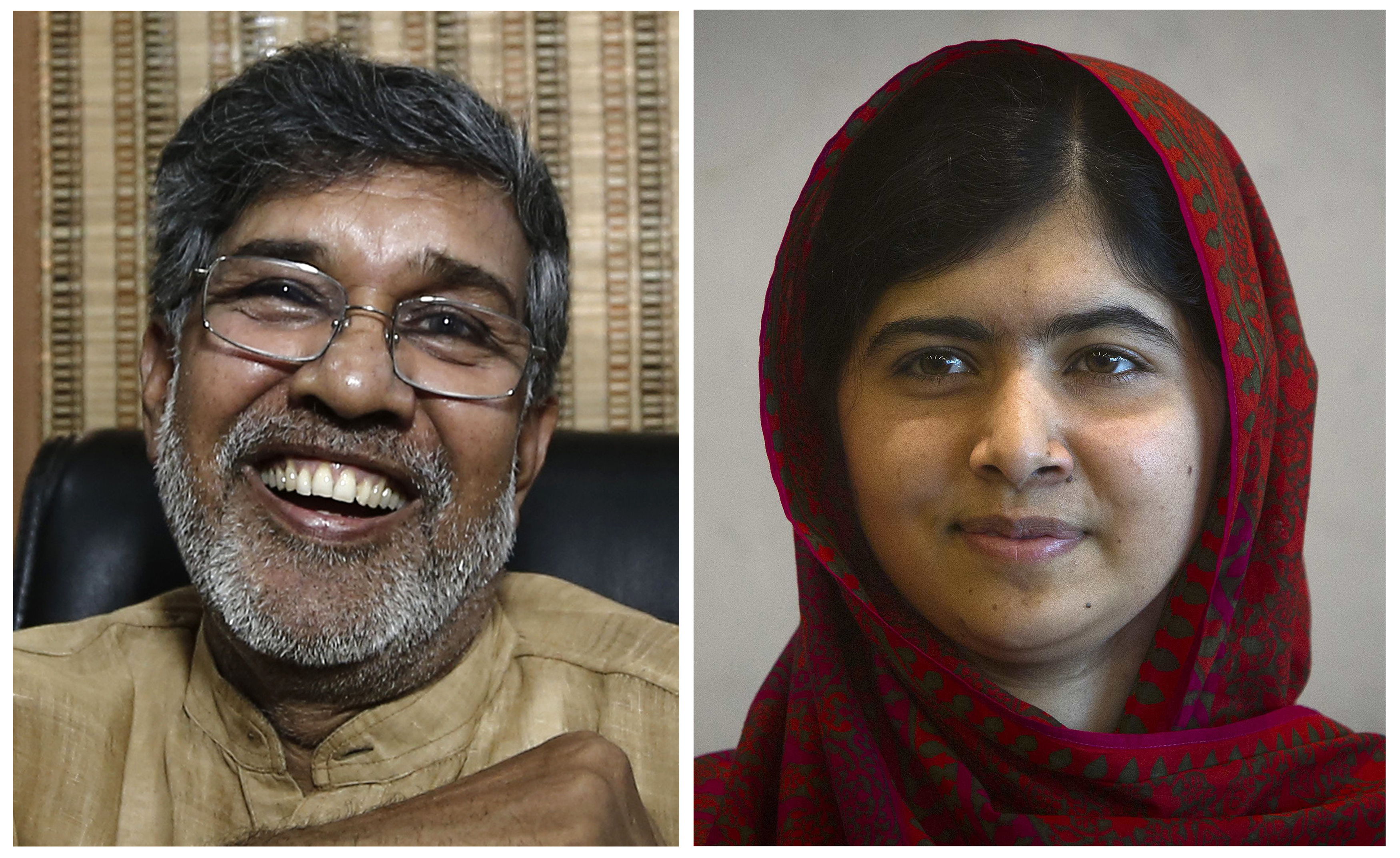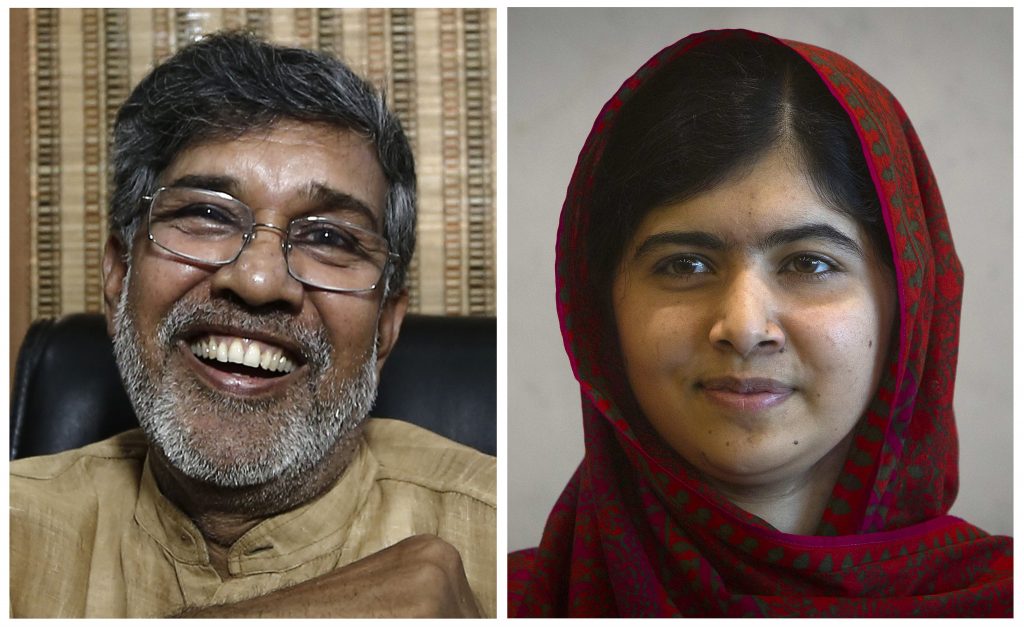
It is South Asia, in a sense, that has won the Nobel Peace Prize this year. The Norwegian Nobel Committee has rightly honored Pakistan’s Malala Yousafzai for her advocacy of education for young girls, and India’s Kailash Satyarthi for his crusade against child labor and enslavement.
(Malala, already known worldwide, even without her surname, is at age seventeen the youngest-ever Nobel peace laureate; she was last year one of the winners of the Atlantic Council’s Freedom Award.)
Sadder is the fact that the reason South Asians can be so honored for this work is that it is so badly needed in the region. A UNICEF study in January found that 27 million to 33 million children of school age (five to thirteen years) are out of school in just the four largest countries of South Asia (India, Pakistan, Bangladesh and Sri Lanka).
Since 2012, when a Pakistani Taliban gunman critically wounded her in an assassination attempt, Malala has campaigned for all children, including girls, to receive an education. A measure of that challenge in her homeland is that the UNICEF report found Pakistan to have fully a third of its school-aged children outside school walls—the highest percentage measured in the region. Pakistan’s non-government Society for the Protection of the Rights of the Child noted last year in its annual report, The State of Pakistan’s Children, that the country had “reduced its spending on education from 2.6 percent to 2.3 percent of the … gross national product” between 1999 and 2010.
In India, Kailash Satyarthi has been honored by international organizations and the US State Department—and attacked, politically and physically, by business owners who fear he will deprive them of cheap child labor and the profits that can come from it. Satyarthi’s organization, the Bachpan Bachao Andolan (Save Childhood Movement), has investigated, protested, and intervened against the trafficking and enslavement of children, notably to pay off the debts of their parents. His organization now counts more than 82,000 children whom it has freed from such bondage in sweatshops weaving rugs or making firecrackers, from labor hauling dirt at construction sites or making bricks in the heat of brick kilns.
Neither Malala nor Satyarthi has been deterred by the attacks against them. Malala and her family have been forced to take refuge in the United Kingdom from the Taliban’s death threats in Pakistan. Taliban and other extremists in Pakistan, including many in its teeming cities, sustain their threat against Malala, painting her as a tool of foreign, anti-Islamic interests. But in fact, they fear the emancipation of Pakistani girls as a threat to their male domination of traditional society, and they simply invoke religion as a weapon against her cause.
Pakistan’s 200 million people are an overwhelmingly young population, with a median age of 22 years. Its current failure to educate vast numbers of its 50 million girls and young women below that age is a heavy shackle on any hope for developing the country and its flagging economy. Malala’s campaign would educate those 50 million and turn them into a vanguard of Pakistan’s development. Without that, Pakistan risks being relegated to the lower rungs of economic and political stability.
Wise beyond her years, Malala used the Nobel Prize announcement to reach beyond her immediate goal of girl’s education. She announced that she and Satyarthi are inviting the prime ministers of India and Pakistan to acknowledge this joint award to two South Asians by joining them at the peace prize ceremony, to be held December 10 in Oslo, Norway. She urged them to use that occasion to launch a dialogue for peace between the two countries, whose unhealed wars over the land of Kashmir have erupted in the deadliest battles in a decade along the cease-fire line that has divided them since the 1940s. As the fighting continued in Kashmir’s mountains, it may be time to heed her call.
Shuja Nawaz is director of the South Asia Center at the Atlantic Council.
Image: Kailash Satyarthi, left, campaigns against child slavery and trafficking in India, while Malala Yousafzai, is Pakistan’s most prominent activist for children’s—notably girls’—right to education. The two have called on their prime ministers to accompany them to the Nobel Peace Prize ceremony December 10 in Oslo, and to revive a dialogue toward achieving a lasting peace between the two South Asia giants, which continue to skirmish in their dispute over Kashmir. (REUTERS/Adnan Abidi, Carlo Allegri)

